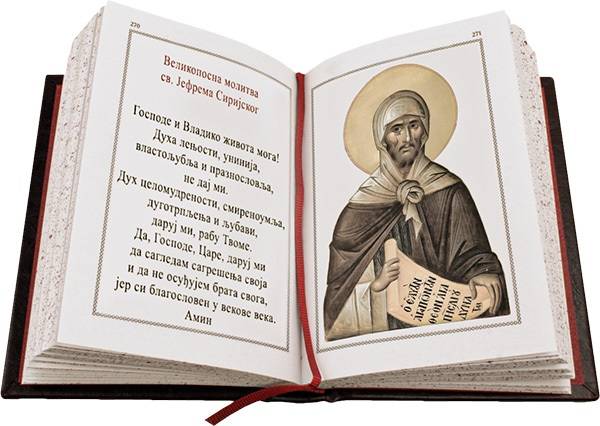
The Four Pillars of Repentance: The Power of Lenten Prayer
Of all the hymns and prayers during fasting, one short prayer can be designated as the Prayer of Lent. Tradition attributes it to one of the great teachers of spiritual life - St. Ephraim the Sirin. This is a prayer against the spirits of laziness, laziness, lust and idle talk, that is, the "four horsemen of the apocalypse" who gallop towards the soul of an Orthodox Christian, destroying it for eternal life.
Lord and Master of my life!
Do not give me the spirit of laziness, sadness, lust and empty talk.
Grant me, Your servant, the spirit of purity,
Calmness, patience and love.
Yes, Lord King, let me see mine
transgressions and not to judge my brother,
for you are blessed forever and ever. Amen.
Why does this short and simple prayer occupy such an important position in the entire Lenten service? Because it enumerates all the negative and positive elements of repentance in a unique way, it forms, so to speak, a "reminder" for our individual feat in fasting. The feat is directed first of all in the direction of liberation from some basic spiritual diseases that form our life, and allow us to start turning towards God.
The basic disease is "emptiness" (laziness). It is that strange laziness and passivity of the entire being, which constantly convinces us that change is impossible, and therefore undesirable. In fact, it is a deep-rooted doubt, which answers every spiritual challenge with "what, for what?" and makes our life a terrible spiritual wasteland. It is the root of all sin, because it poisons the spiritual energy at its very root.
The result of such laziness - "emptiness" is "uniness" - sadness. It is a state of despair, despondency, which all the Fathers of spirituality considered as the greatest danger for the soul. Despondency is the inability of a person to see any good and anything positive. It is the reduction of the world to negativism and pessimism. It is a demonic force within us, because the devil is basically a lie. He lies to man about God and the world; it fills life with darkness and negation. "Unity" is the suicide of the soul, because if it overwhelms a person, he is absolutely incapable of seeing the light and wanting it.
"Jealous" - lust! As strange as it may seem, "emptiness" and "uniness" fill our lives with lust. By ensuring the entire attitude towards life, making life meaningless and empty, "emptiness" and "uniness" force us to seek compensation in a fundamentally wrong attitude towards other people. If my life is not oriented towards God, is not focused on eternal values, it will inevitably become selfish and self-centered, which means that all other beings will become a means to satisfy my selfishness. If God is not Lord and Master of my life, then I become my own lord and master - the absolute center of my own world, and I begin to value everything in terms of my needs, my ideas, my desires, and my assessments. In this way, lust is the most basic depravity in relation to other beings, seeking ways to subjugate them.
It is not unconditionally expressed in the real urge to rule, to dominate "others". It can manifest itself in indifference, belittling, lack of interest, recklessness and disrespect. It is indeed "emptiness" and "unity" directed this time against others; it completes spiritual suicide with spiritual murder.
Finally, "nonsense". Only man, of all creatures, is endowed with the gift of speech. All the Fathers see in this the "seal" of the image of God in man, because God Himself revealed Himself as the Word. But the word as the supreme gift is at the same time the supreme danger. Being the basic expression of man, the means of his creation, speech is for the same reason also the means of his fall and self-destruction, fraud and sin. Words save and words kill. Words inspire and words poison. The word is the instrument of truth and demonic lies. Having an extremely positive force, it also has a terribly negative force. It really creates positive or negative. When it departs from its divine origin and purpose, the word becomes "empty." It inevitably conditions laziness, lust, despair, and turns life into hell. It becomes the very force of sin.
These are the four negative conditions of repentance. They are obstacles to overcome. But only God himself can remove them. Therefore, the first part of the fasting prayer is a cry from the depths of human helplessness. Then the prayer moves in the direction of the positive goals of repentance, and there are four of them again.
Purity, chastity! If this term is not reduced only to its sexual characteristic, and this is mistakenly done very often, purity is understood as the positive opposite of "emptiness". The correct and complete translation of the Greek "sophrosini" and the Church Slavonic "celowisdom" should be "purity of mind". Laziness is, first of all, wastage, wastage, licentiousness - the brokenness of our vision and energy, the inability to see the whole. Its exact opposite is wholeness. If we usually think of chastity as a virtue opposite to sexual promiscuity, it is because the weak character of our existence is nowhere better manifested than in sexual lust - alienation of the body from life and control of the spirit. Christ restored wholeness in us, established a true standard of value in us and restored us to God.
The first and most wonderful fruit of this wholeness or purity is humility. We have already talked about her. She, above all else, represents the victory of the truth in us, the removal of all lies, seeing and accepting things as they are, and therefore seeing God's majesty, goodness and love in everything. Therefore it is said that God is merciful to the humble and opposes the proud.
The natural companions of patience are purity and humility. "Natural" or "fallen" man is impatient. Blind to himself, he is quick to judge and condemn others. Since his knowledge of everything is truncated, incomplete and distorted, he measures everything according to his own taste and ideas. Indifferent to everyone except himself, he wants his life to be successful, here on earth and immediately. And patience is a divine virtue. God is patient not because he is "gentle" but because he perceives the depth of everything that exists, which is open to him the inner reality of things, which, in our blindness, we cannot see. The closer we get to God, the more patient we become, and then our boundless respect for all beings is increasingly reflected in us, which is already a divine quality.
Finally, the crown and fruit of all virtues, of all growth and effort, is love - that love which, as we have already said, can only be given by God. It is a gift that is the goal and purpose of all spiritual preparation and practice.
Everything is collected and included in the final part of the prayer. We ask "to see our transgressions and not to judge our brother". But there is one danger: pride. Pride is the source of evil, and all evil is pride. And yet it is not enough just to notice our sins. Even this apparent virtue can turn into pride.
The spiritual writings are full of warnings against subtle forms of pseudo-godliness which, under the guise of calmness and self-condemnation, can lead to true demonic pride. When we "see our own mistakes" and "do not judge our brothers", when, in other words, purity, humility, patience and love merge into one whole, then and only then is the greatest enemy destroyed in us, namely, pride.
We meditate after each prayer. Methanizations are not limited only to the prayer of St. Efrem Sirin. They constitute one of the specific characteristics of the entire Lenten liturgy. But in the prayer of St. The meaning of methanization is best expressed by Ephraim. In the long and difficult effort of spiritual renewal, the Church does not distinguish between soul and body. The whole man has fallen away from God. The whole man needs to be renewed, the whole man needs to return to God.
The disaster of sin flies to the predominance of the carnal - animal, irrational and lustful in us - over the spiritual and divine. However, the body itself is sublime, the body is holy. It is so holy that God himself "became man". Therefore, the body is not despised or neglected in relation to repentance and salvation. It was restored and restored to its basic functions: to express through it the life of the spirit and to be the temple of the priceless human soul. Christian asceticism is a struggle, not against the body but for the body. For this reason, the whole person - soul and body - repents. The body participates in the prayer of the soul just as the soul prays through the body and in the body. Methanizations are a "psychosomatic" sign of repentance, humility, deification and submission. They are the fasting ritual par excellence.
archpriest Alexander Shmeman
Taken from the book Great Lent
PHOTOS
RELATED ARTICLES

Patriarch Porphyry Awarded the Order of the Holy Equal-to-the-Apostles Prince Vladimir
After the Divine Liturgy in the Assumption Cathedral of the Trinity-Sergius...
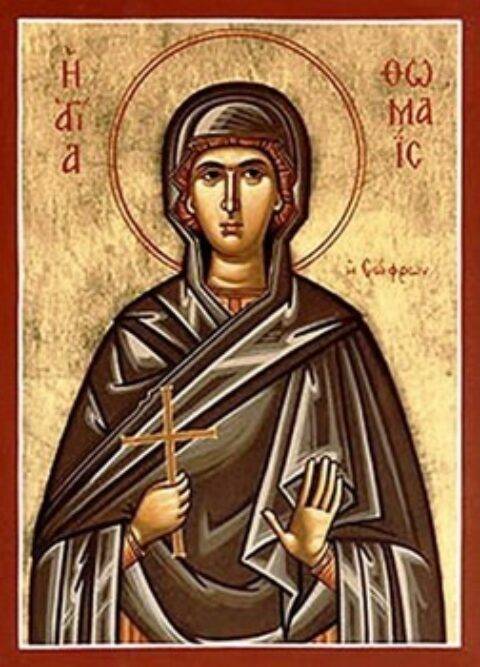
Calendar for April 26 Holy Martyr Thomais
Born in Alexandria of honorable parents; taught piety from a young age and at...
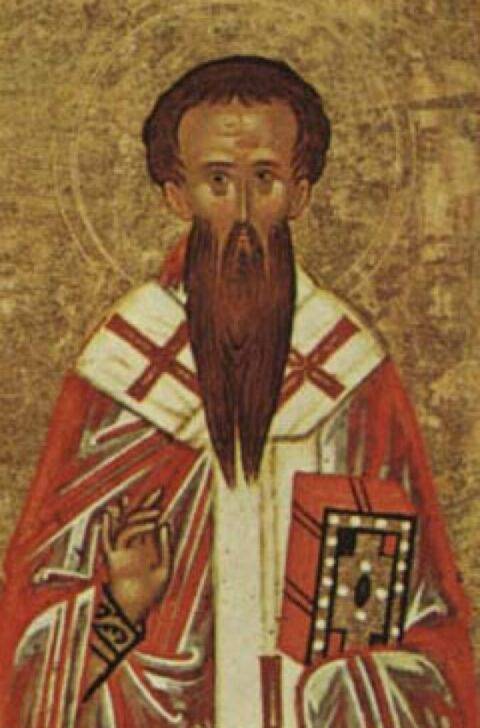
Calendar for April 25 Saint Basil the Confessor – Eastern Friday
A companion and martyr of Saint Procopius the Decapolis. Basil faithfully...


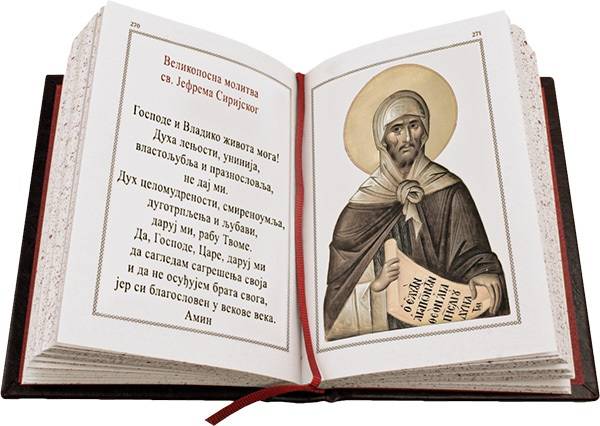

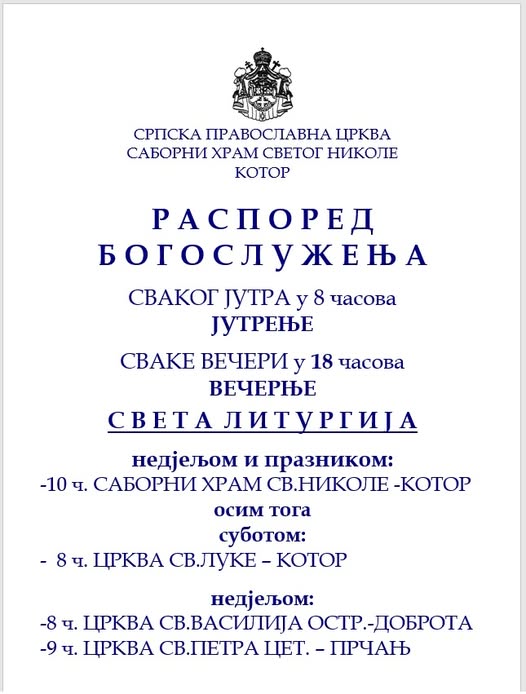
.png)